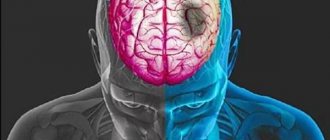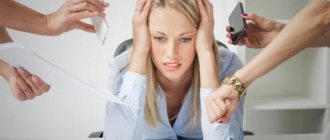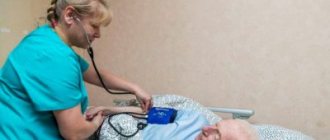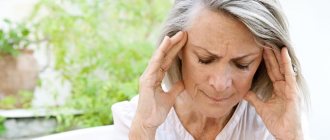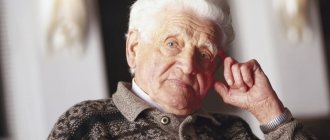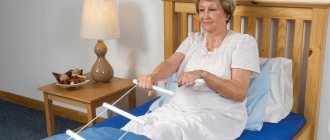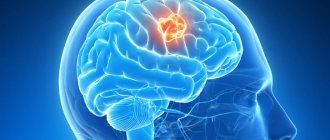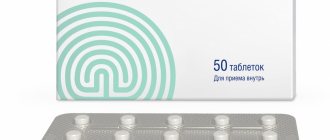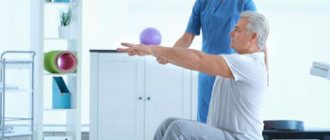Medical certificate
Stroke is neurological in nature. The cause of this terrible disease is an acute violation of cerebral circulation. It is disrupted due to blockage of blood vessels by blood clots or due to embolism of the cerebral arteries. Stroke is most common among residents of developed countries. A sedentary lifestyle is thought to increase the risk of stroke. The brain is poorly supplied with oxygen, which leads to acute brain hypoxia and subsequent death of nerve cells.
Nervous tissue is the most delicate and sensitive. She absolutely cannot tolerate circulatory disturbances: this leads to the rapid onset of ischemia and disruption of the normal functioning of neurons. Just half an hour after the blood flow is disrupted, irreversible changes occur, which forms the picture of the disease. Thus, in case of a stroke, it is important to help the person as soon as possible, before the changes become irreversible.
In medicine, it is customary to divide stroke into two categories:
- ischemic, when there is complete occlusion of the lumen of the vessels;
- hemorrhagic, when the vessel ruptures and hemorrhage occurs into the surrounding tissue. In this case, a cerebral hematoma is observed.
The mechanisms of disease development are approximately the same, but the consequences may be different. Statistics say that in 80% of cases it is the ischemic form of stroke. Both forms of stroke are associated with atherosclerotic changes in the vascular system. Important: hemorrhagic stroke is more dangerous, since when a hematoma develops, a shift in the brain can sometimes occur.
Mental illness
People suffering from epilepsy often have a history of mental pathologies. Neurological disease can be provoked by constant stress, depression, and emotional stress. Epileptologists often wonder whether mental disorders are predisposing factors for the development of epilepsy or are independent risk factors.
In 2009, a special study was conducted in which veterans of the control group and veterans with epilepsy, which was diagnosed for the first time, took part. As a result, researchers have proven that anxiety, depression, and alcohol abuse are common among newly diagnosed patients.
After this, scientists looked at risk factors such as head injury and stroke, dementia, brain tumors and proved that only psychosis is associated with epilepsy. There is no 100% guarantee that the tests are diagnostically accurate. Among elderly patients, there is a relationship between mental disorders and epilepsy, but they do not always become the main factors that provoke the development of the disease.
It is also known that the group of veterans did not include a representative population of elderly people. In the future, researchers will conduct studies that will prove or disprove a possible connection between mental disorders and epilepsy.
Causes of stroke
Stroke is a so-called multifactorial disease. It is believed that stroke has many different causes, each of which makes a specific contribution:
- unhealthy lifestyle, which may include overeating and physical inactivity;
- great psycho-emotional stress;
- bad habits, especially smoking;
- hypertonic disease;
- some other factors, including heredity.
These factors can act together or separately.
What are the causes of aggressive behavior in people who have had a stroke? They are:
- damage to areas of the cerebral cortex responsible for emotions, behavior and intelligence;
- extensive brain damage. This is the most common cause of aggression.
One of the common consequences of a stroke is paresis of the facial muscles. The man's face contorts. Important: aggression in people who have suffered a stroke may develop not as a result of damage to areas of the brain, but already during the rehabilitation period, when a person cannot come to terms with the loss of certain functions of his body.
How to prevent an attack of aggression?
It is worth analyzing the situations in which such behavior appears, identifying its causes and, if possible, removing them. Consulting a psychiatrist-gerontologist will help you cope with this task.
The patient’s relatives will have to change their behavior and attitude towards him:
- accept age-related changes, come to terms with the fact that a person needs more time even for simple things, with the fact that he can forget a lot, do something wrong, it is especially important not to get irritated, not to react negatively, so as not to provoke an aggressive response;
- take into account the state of health: constant pain, as well as decreased hearing or vision, distort the perception of the environment, the person begins to react sharply to stimuli;
- try not to criticize, not to make unnecessary comments; try not to create situations in which the patient might do something wrong, and if he has made a mistake, do not focus on it;
- if an elderly person needs help when visiting the toilet, changing clothes, or performing hygiene procedures, it should be gentle, and the actions of the person helping should not cause discomfort;
- monitor the emotional state: if “harbingers” of aggressive behavior appear (anxiety, restlessness, fear, pain), try to call a gerontologist as quickly as possible; timely prescribed drug treatment will prevent the development of an attack of aggression.
Manifestations of aggression in post-stroke psychosis
Aggression after a stroke has a number of features. Usually, when inappropriate behavior develops, the patient is dangerous to himself and others. The aggressive state does not develop immediately, but gradually, over two or three months. It is characterized by the following:
- self-criticism disappears;
- the patient withdraws into his thoughts and withdraws from everyone;
- intense psycho-emotional background;
- slurred speech;
- interest in surrounding things and people disappears;
- inappropriate behavior, especially at night;
- weight loss.
In a person who has suffered a stroke, aggression is often accompanied by a depressive state. Aggression is characterized by attacks. Most often it appears at night. Emotional instability leads to increased vulnerability of the patient, and this, in turn, causes him an inferiority complex. A vicious circle arises. Relatives observe with horror that a loved one has become different, distant and aggressive.
Clinical manifestations
Epileptic seizures are more easily tolerated in older people than in younger people. Epilepsy is not so acute. Most often, complex partial seizures are observed, which complicate the diagnosis at the initial stage. In patients of this age category, an extratemporal epileptic focus is diagnosed. The typical olfactory foci of an epileptic seizure, which are mainly characteristic of young people, are rarely detected.
If symptoms are observed that are called so-called “harbingers” of an epileptic attack, then they include constant dizziness. There are also short-term loss of consciousness, impaired perception, memory loss, problems with coordination and attentiveness. Both young and old people exhibit signs such as tongue biting, fractures and dislocations. The post-ictal period lasts from one to several days.
A person has become aggressive - what to do?
Scientists have not yet developed a reliable method for fully restoring people after a stroke. Attention from family and friends is of great importance. A person who has suffered a stroke is in great need of support from relatives. The best solution is to avoid the development of post-stroke psychosis and depression. In some cases, psychotherapy may be required. It is important that the victim himself understands the need to combat manifestations of aggressiveness. Then there is a chance for healing. With mild forms of psycho-emotional disorder, love and care from loved ones will be quite enough. Prescription of antidepressants brings good results. In general, treatment after a stroke includes:
- angioprotectors - drugs that strengthen the walls of blood vessels;
- nootropics - drugs that improve cerebral circulation;
- thrombolytics - drugs that thin the blood.
The faster the recovery processes in the brain take place, the sooner a person will get rid of depression and psychosis.
Emotional state after a stroke
A person who has suffered a stroke needs special treatment. And this is due not only to the partial loss of motor functions, speech skills, memory, but also to changes in the emotional state. Many things in a person’s behavior after a stroke may seem strange to those close to them. For example, due to visual impairment, he can eat only on one side of the plate, without seeing the other due to the loss of half his field of vision. Or, due to sensory aphasia, a person may cease to adequately perceive his surroundings, his facial expressions and gestures may become meaningless and uncontrollable, and his speech may become incoherent.
As a rule, loved ones treat such changes with understanding, but they do not always understand the objective reason for these changes. The fact is that in acute cerebrovascular accident, necrosis of an area of the cerebral cortex occurs, and this directly affects not only physical abilities, but also the personality of a person.
After a stroke, a person may have difficulty falling asleep, suffer from increased fatigue, and may become irritable and aggressive or whiny, touchy, and depressed. Often after a stroke there are sudden and causeless mood swings, which are called emotional lability. A person suddenly bursts into tears or suddenly begins to swear, suddenly this is replaced by laughter.
The character and habits of a person after a stroke inexplicably change, he either falls into unmotivated anger, or into an anxious, depressive state and is distrustful of loved ones who want to help him, and at the same time complains that he feels superfluous, unnecessary. In some cases, partial dementia occurs after a stroke.
For loved ones, it can be very difficult to withstand this, because in fact, after a stroke, they see a different person in front of them, but continue to perceive him as the same. Therefore, they explain many changes in his psyche not only and not so much by illness, but by capriciousness, the desire to attract increased attention to himself. This is the main problem, which requires not just moral support and human understanding, but also professional help from a psychotherapist.
After all, it is not enough to simply accept a person as he has become, but also to motivate him as much as possible to recover, without judging him, but by stimulating social adaptation and a return to normal life.
Psychological rehabilitation after a stroke is the most important part of the rehabilitation course in specialized hospitals. The success of other components of rehabilitation largely depends on it - restoration of motor functions, skills, speech, writing, improvement of mental activity.
On the other hand, there is also feedback. Restoring motor activity with the help of PNF therapy or the Erigo system improves a person’s psycho-emotional state, helps him overcome depression and creates a positive attitude. This once again proves the importance of an integrated approach to rehabilitation after a stroke and the invaluable assistance that specialized medical specialists can provide in this regard in a hospital setting
Heart rhythm disturbances
Cardiac arrhythmia is a common complaint in old age, which poses a threat not only to the health, but also to the life of the patient. Manifested by sudden loss of consciousness and other signs of the cardiovascular system. Arrhythmia can be short-term or long-term. This pathology is not always associated with chronic fatigue. Often arrhythmia occurs for no apparent reason. The increased risk of cardiac arrhythmia increases in the case of ventricular tachycardia and coronary artery disease. In such cases, the functioning of the heart is disrupted.
